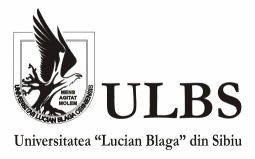“Ropardo began its cooperation with the Engineering Faculty “Hermann Oberth” of “Lucian Blaga” University with e-Univ, an application developed on ConnAct platform, an e-business solution for the academic environment, financed by INFOSOC, which had as main purpose to increase the performances of the university activities and its capacity to manage knowledge. The purpose of this project was accomplished by adapting a Knowledge Management software solution to the necessities of the academic environment.
Our collaboration proved the high professionalism and seriousness of Ropardo team, for which reason we recommend their specialist team for cooperation in academic activities, research programs and other.”

